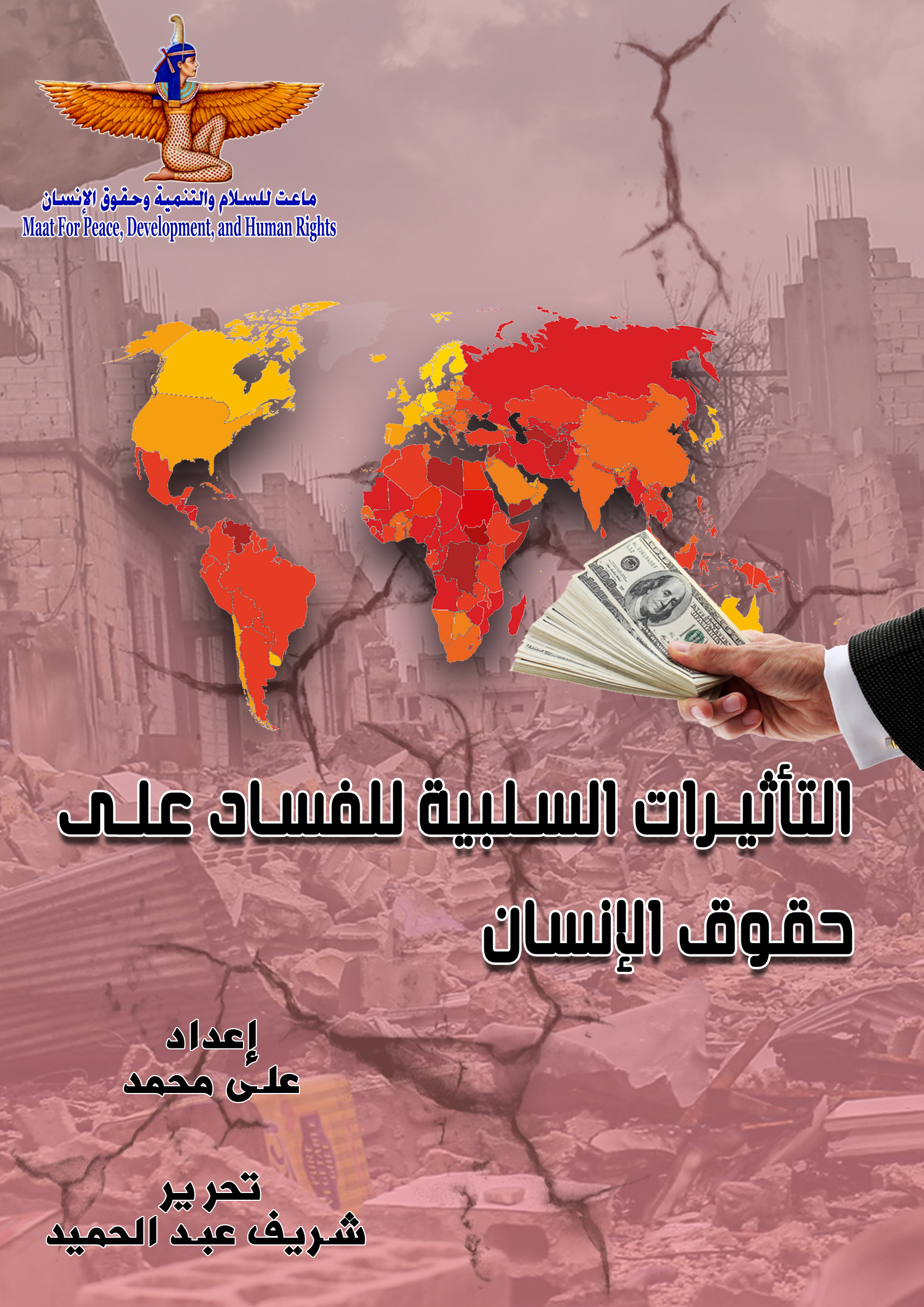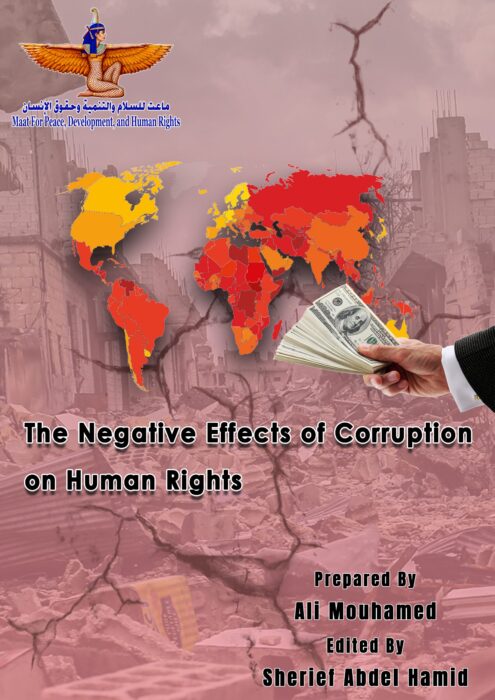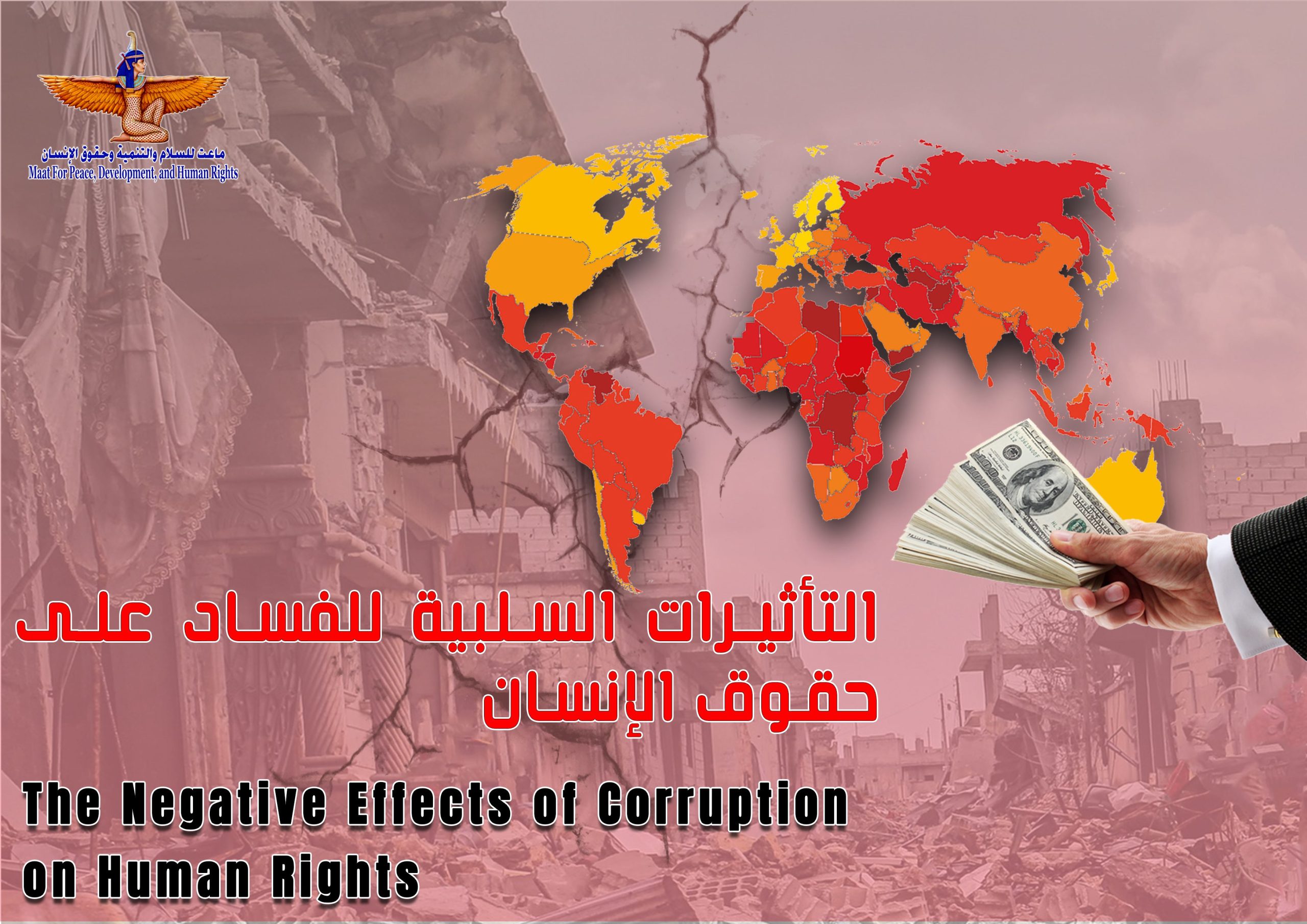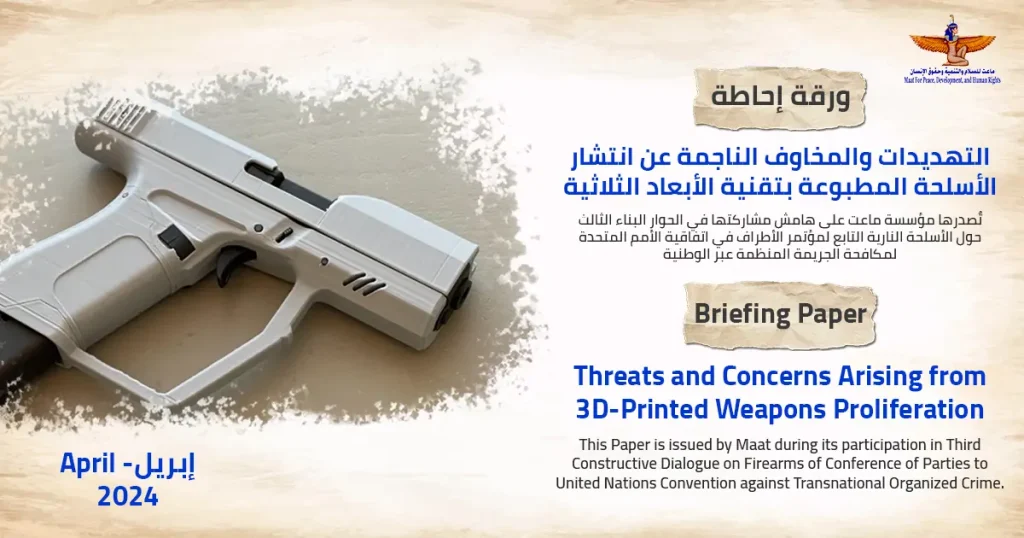Okeil: We demand the issuance of laws to protect witnesses and whistleblowers in corruption cases
Sherif Abdul-Hamid: Corruption crimes cost developing countries about 1.6 trillion annually
Maat for Peace, Development and Human Rights presented an oral intervention in an intersessional panel discussion of the Human Rights Council, which discussed challenges and good practices in preventing corruption and its repercussions on the enjoyment of human rights in the context of the coronavirus pandemic.
The intervention addressed the multiple effects of corruption on human rights in light of the Covid-19 pandemic and clarified that corruption has a direct impact on the human rights situation at all levels. The spread of corruption within judicial institutions, for example, violates the right to a fair trial, which is guaranteed by the right to civil and political rights through the arbitrary rulings issued by the judiciary, in addition to acquitting some of the accused in the cases of killing human rights defenders, which leads to impunity. Maat, therefore, called on all member states to join the Anti-Corruption Agreement and work to implement its provisions.
On the sidelines of its participation in the panel discussion, Maat issued a report entitled “The Negative Effects of Corruption on Human Rights”, in which it discussed the close relationship between promoting human rights and combating corruption, especially civil, political, economic, and social rights, as well as the right to development. According to some estimates, one trillion dollars are paid annually as bribes for the abuse of power or the enjoyment of benefits that undermine two core principles of human rights; namely, equality and non-discrimination. The report also discussed the main challenges of fighting corruption.
In this context, the human rights expert and president of Maat, Ayman Okeil, confirmed that rampant corruption undermines the principles of equality and non-discrimination, two core principles of the international human rights law (IHRL), impacts the right to political participation, in light of the ongoing increase in the targeting of human rights defenders, and impedes access to information, exacerbating corruption and lack of transparency.
Okeil added that providing protection for human rights defenders is the responsibility of the state, given the grave risks they are exposed to. In August 2020, Iraqi human rights activist Reham Yacoub was killed by unknown persons in Basra Governorate while she was in her car with her colleague. The killing was triggered by the anti-corruption campaigns she led on social media. Human rights defenders will continue to be targeted unless states establish mechanisms to combat corruption, monitor the influence of executive officials, and eliminate pressure groups that often control the spread of corruption in the dark.
The human rights expert also called for the need to issue laws to protect witnesses and whistleblowers in corruption cases, and to issue national strategies to combat corruption and operational plans for them.
For his part, Sherif Abdul-Hamid, director of the Research and Studies Unit at Maat, said that corruption is a serious challenge undermining the achievement of the goals of the 2030 Agenda for Sustainable Development. The outbreak of corruption crimes and illegal practices reduces the efforts of governments to provide resources that meet the basic needs of individuals. Corruption-related crimes cost developing countries about 1.6 trillion annually, which affects the implementation of sustainable development goals, especially SDG 16, which is related to promoting peaceful societies, providing access for all, and building effective, accountable, and inclusive institutions at all levels.
Abdul-Hamid also called on countries to attach part of the development and humanitarian aid to the application of the rules of transparency and good governance in low-income countries in a way that does not affect the most vulnerable groups, in addition to the establishment of anti-corruption units, and the development of mechanisms to receive complaints about practices that involve corruption.

 |
 |











